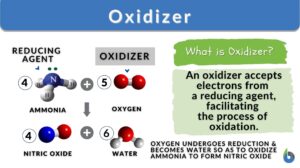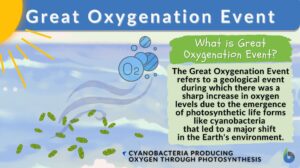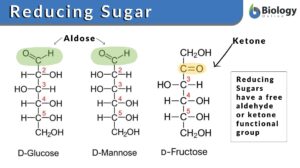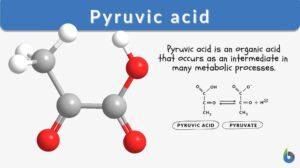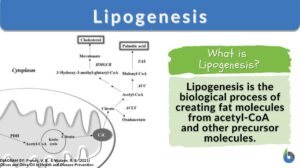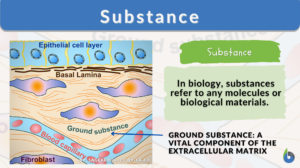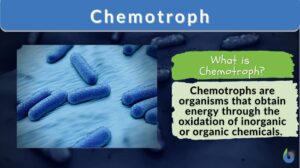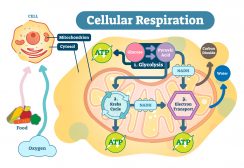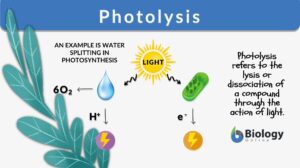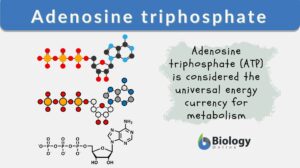Search Results for: oxidation
Redox reaction
Redox Reaction Definition What are redox reactions? This is a common term in chemistry and biology. In chemistry, a redox... Read More
Oxidation-fermentation test
Definition noun A test used to identify bacteria by the way they metabolize a carbohydrate substrate (e.g. glucose) whether... Read More
Krebs cycle
Krebs cycle, also known as the citric acid cycle or tricarboxylic acid (TCA) cycle, is a fundamental metabolic pathway that... Read More
Great Oxygenation Event
Great Oxygenation Event Definition The Great Oxygenation Event is defined as the surge of dioxygen (O2) levels in the... Read More
Reducing sugar
Reducing Sugar Definition What is reducing sugar? The type of sugar that acts as the reducing agent and can effectively... Read More
Pyruvic acid
What is Pyruvic Acid? Pyruvic acid is an organic acid that occurs as an intermediate in many metabolic processes. It occurs... Read More
Catabolism
Catabolism Definition Catabolism is the branch of the metabolic process that breaks down complex, big molecules into... Read More
Cellular respiration
Cellular Respiration Definition What is cellular respiration in simple terms? Cellular respiration can be defined simply as... Read More
Photosynthesis
Photosynthesis is a physio-chemical process carried out by photo-auto-lithotrophs by converting light energy into chemical... Read More
Phosphorylation
Phosphorylation Definition We can define phosphorylation as a biochemical process in which a phosphate molecule is added to... Read More
Lipogenesis
Lipogenesis Definition Lipogenesis is the process of producing lipid or fat to store biochemical energy for later metabolic... Read More
Flavin adenine dinucleotide
Definition noun plural: flavin adenine dinucleotides fla·vin ad·e·nine di·nu·cle·o·tide, ad·e·nine... Read More
Chemotroph
Chemotroph Definition A chemotroph refers to an organism that obtains energy mainly from carbon dioxide and from... Read More
Fermentation
Fermentation Definition What is fermentation? Fermentation is the breaking down of sugar molecules into simpler compounds... Read More
Cell Respiration
As mentioned in the previous tutorial on ATP, the process of respiration is split into 3 distinct areas that occur at... Read More
Plant Metabolism
Introduction Plants are responsible for incredible feats of molecular transformation. The processes are always being... Read More
Photolysis
Photolysis Definition We define photolysis as a chemical process in which chemical compounds or molecules are split into... Read More
Metabolism
Metabolism Definition What is metabolism in the body? Metabolism encompasses the various biochemical processes, reactions,... Read More
Light-dependent reaction
Many organisms, such as green plants, convert light energy into chemical energy through the mechanism of photosynthesis. In... Read More
Adenosine triphosphate
Adenosine Triphosphate Definition noun plural: adenosine triphosphates (biochemistry) An organic compound that is... Read More
Anaerobic respiration
Anaerobic Respiration Definition What is anaerobic respiration? Anaerobic (cellular) respiration is a respiratory process... Read More
A Balanced Vitamin Diet – Vitamins A – K
As mentioned in the previous tutorial, a balanced diet is essential to a healthy organism. Deficiencies in particular... Read More
Luciferase
Definition noun, plural: luciferases Any of the group of enzymes that act on the oxidation of luciferin of bioluminescent... Read More
Methanotroph
Definition noun, plural: methanotrophs An organism that metabolize methane as a source of carbon and... Read More
Facultative anaerobe
Facultative Anaerobe Definition What does facultative anaerobe mean? Facultative organisms are the most adaptable... Read More
Oxidative phosphorylation
Definition noun A metabolic pathway that generates ATP from ADP through phosphorylation that derives the energy from the... Read More
Flavin mononucleotide
Definition noun plural: flavin mononucleotides fla·vin mon·o·nu·cle·o·tide, ˌmɒnəʊˈnjuːklɪəˌtaɪd A... Read More
Glycolysis
What is Glycolysis and Why is it Important? Glycolysis is a metabolic pathway by which the 6-carbon molecule of glucose is... Read More
Respiration
Definition noun, plural: respirations Any of the various analogous processes by which there is an exchange of... Read More





